-
FAA to toughen co-pilot qualifications requirements
In the aftermath of a 2010 crash of a regional airliner near Buffalo, New York, which killed fifty people, the Federal Aviation Administration (FAA) has developed new standards for co-pilots. These new standards will now be imposed.
-
-
New program whisks passengers through airport security
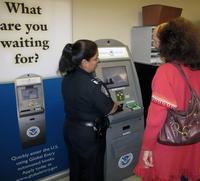
A new system has been introduced to get passengers through airport security faster. The program, called Global Entry, was developed by the Customs and Border Patrol (CBP) and it offers a new way to avoid customs and immigration lines.
-
-
FAA wants pilot convention to pay for air-traffic control services
The Federal Aviation Administration (FAA) told the Experimental Aircraft Association (EAA) that it – the EAA – would have to pay for air traffic control services during the EAA’s big AirVenture event in Oshkosh, Wisconsin. The EAA asked a court for a judicial review of the FAA request, arguing that the FAA’s demand amounts to imposing a user fee on the pilots who take part in the event – pilots who already pay fuel taxes which fund the national air-traffic control system.
-
-
Study shows TSA security screeners are methodical, not slow
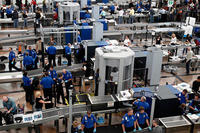
A study by Duke University, partially funded by DHS, found that TSA screeners may be slower than amateur screeners when it comes to performing visual searches, but the TSA screeners are better at detecting contraband.
-
-
NTSB recommends changes to FAA aborted landing rules
The National Transportation Safety Board (NTSB) has recommended changes to the Federal Aviation Administration’s (FAA) rules for aborted landings after investigating five near-misses between commercial jetliners at major airports, three of which occurred at Las Vegas’s MaCarran International Airport.
-
-
FAA investigating use of Michigan state-owned planes
The Federal Aviation Administration(FAA)is looking into the State of Michigan’s practice of leasing its passenger planes to athletic officials at Michigan State University(MSU).
-
-
Radiation dose passengers receive from airport scanners is low
An independent task force examining X-ray backscatter scanners at LAX airport determines that that people absorb less radiation from airport X-ray backscatter scanner than they do while standing in line waiting for the scan.
-
-
FAA to relax in-flight electronics ban

A federal advisory panel debating whether to allow passengers on planes to use electronic gadgets during takeoffs and landings reached a consensus last Friday to lift some of the current restrictions.
-
-
Airport screener union says TSA is violating contract
In January, 45,000 airport screeners and their union reached an agreement with the Transportation Security Administration (TSA) on the first collective bargaining agreement since the agency was created after 9/11. The American Federation of Government Employees union now says TSA management has violated the terms of the January agreement in several areas.
-
-
Former investigators pushing for new look into TWA flight 800 crash
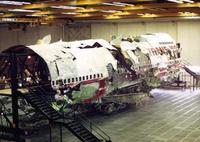
Former investigators want to reopen the case of the 1996 TWA Flight 800 crash off the coast of Long Island. They say that new evidence points to a missile strike that may have hit the jet. Theories of an errant missile being fired from a U.S. military vessel – advanced, among others, by Pierre Salinger, who was JFK’s press secretary in the early 1960s — were refuted, but a separate theory of shoulder-fired missile fired by terrorists has lingered.
-
-
Airport baggage scanning: slow, steady pace yields better results
Next time you are doing a slow burn in security screening at the airport, calm yourself with the assurance that a more deliberate baggage scanner may do a better job. Researchers find that systematic searching frees up memory to do a better job at scanning.
-
-
TSA’s behavior detection program not cost effective: DHS IG
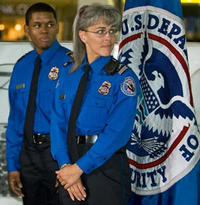
DHS Inspector General (IG) has released a 41-page report last week stating that the Transportation Security Administration (TSA) cannot ensure that its behavior detection program, known as the Screening of Passengers by Observation Techniques (SPOT) is objective or cost-effective.
-
-
TSA will continue ban on small knives
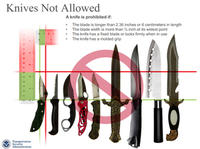
The Transportation Security Administration, responding to pressure from lawmakers, flight attendants, and the public, has decided to abandon its plan to relax the prohibition on passengers carrying small knives on planes.
-
-
DHS debars scanner maker from government contracts
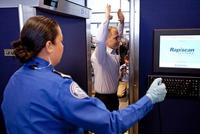
The Transportation Security Administration (TSA) has sent OSI Systems, the manufacturer of airport body scanners, a debarment notice which would prevent the company from receiving government contacts in the future. The notice was sent to the company after TSA determined that the company had failed to address security concerns about its scanners.
-
-
FAA gave bonuses to employees while flights were delayed or canceled
Internal FAA documents show that in early February, while passengers got stranded at airports across the country because sequester-mandated cuts in the FAA budget which led the agency to furlough air-traffic controllers, FAA employees received bonuses for their performance on the job.
-
- All
- Regional
- Water
- Biometrics
- Borders/Immig
- Business
- Cybersecurity
- Detection
- Disasters
- Government
- Infrastructure
- International
- Public health
- Public Safety
- Communication interoperabillity
- Emergency services
- Emergency medical services
- Fire
- First response
- IEDs
- Law Enforcement
- Law Enforcement Technology
- Military technology
- Nonlethal weapons
- Nuclear weapons
- Personal protection equipment
- Police
- Notification /alert systems
- Situational awareness
- Weapons systems
- Sci-Tech
- Sector Reports
- Surveillance
- Transportation
Advertising & Marketing: advertise@newswirepubs.com
Editorial: editor@newswirepubs.com
General: info@newswirepubs.com
2010-2011 © News Wire Publications, LLC News Wire Publications, LLC
220 Old Country Road | Suite 200 | Mineola | New York | 11501
Permissions and Policies
Editorial: editor@newswirepubs.com
General: info@newswirepubs.com
2010-2011 © News Wire Publications, LLC News Wire Publications, LLC
220 Old Country Road | Suite 200 | Mineola | New York | 11501
Permissions and Policies
